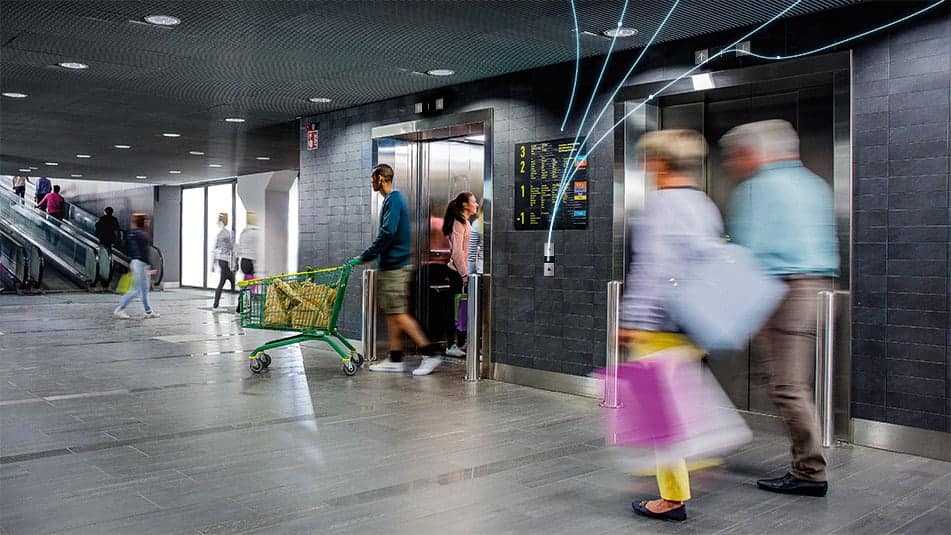Have you ever called an elevator with your nose? You know, your gloved hands were full of grocery bags and you couldn’t extricate a finger, so you bent down and pressed the button with your nose? Ok, maybe not your nose. But you’re likely familiar with the feeling of having too few hands to do everything you need to.
“A connected elevator could have recognized you and known which floor you live on,” says Mikko Aro, Head of Product Management, Europe at KONE. “As soon as you entered the building, you wouldn’t have had to push a button at all.”
This is not science fiction. It’s what we can already do today. Connectivity is the enabler of many of the conveniences of our modern urban environment. And how it works makes perfect sense. At least when it’s explained by Aro – using the human body for reference.
Sense, analyze, act

“Your sense of touch tells you a stove is hot. This information flows through the nervous system to your brain, which tells you to take action and pull your hand away,” Aro explains. This is also what happens with smart, connected devices.
“Sensors are like the senses. Connectivity is like the nervous system, and the cloud is like the brain.”
The ability to analyze vast amounts of information and take action accordingly is the key point of connectivity and why it is becoming ubiquitous. It enables everyday experiences in everyday settings to be personalized.
Even an elevator ride could be personalized if the elevator could recognize the passenger. A sports fan could see the latest hockey scores on a screen inside the elevator, for example, or someone who loves the color blue could get a blue tint to the lighting inside the elevator.
And that’s the topping on the cake. Connectivity can also add more tangible value: create exciting new experiences, improve safety, and make the use of buildings smooth and sustainable.
“Connectivity is actually important for building owners,” Aro says, citing solutions like KONE 24/7 Connected Services that make it easier to monitor elevator performance in real time and keep buildings running smoothly.
“With predictive maintenance, we know exactly what we need to do to an elevator before we even get to the building. This ultimately improves the availability of the equipment and provides more value for the customer.”
Entering the era of built-in connectivity

Advances in technology give connectivity even more possibilities as increasing elements of the built environment become connected. A building can use machine learning to recognize changes in the urban environment and take appropriate actions. For example, a commercial building can learn how many people go to lunch at different times and call the right number of elevators. A metro station can check in real-time when a football match typically ends and temporarily alter its escalators to all run down to the platform, so the people flow remains smooth.
“What we have coming is full digital integration and built-in connectivity,” says Aro. “If you bought a smartphone in 2005, the software never changed. Today a smartphone can update its software remotely.”
The same thing is now happening to more or less all devices – including elevators. And expectations change all the time.
“Why wouldn’t features and functionalities during the lifetime of an elevator or escalator change as well?”
Editor’s note: Content has been reviewed and lightly updated on September 9, 2021.
